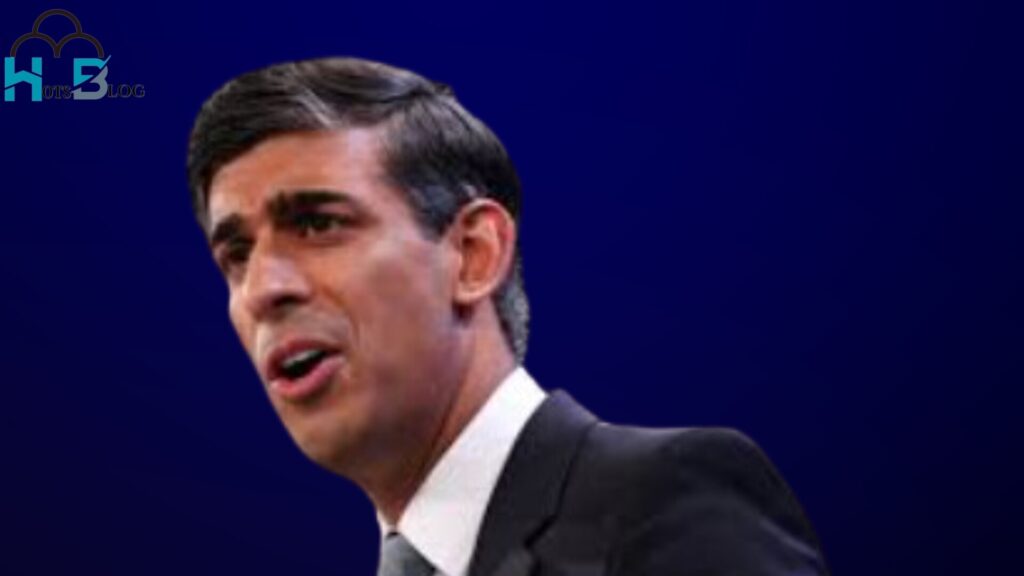Discover the incredible journey of Rishi Sunak, from his successful business career to becoming the Chancellor of the Exchequer. Learn more now!
Rishi Sunak
Rise to Prominence
Rishi Sunak’s journey within the Conservative Party showcases a remarkable ascent. Starting his career in finance, he swiftly rose through the ranks to become one of the youngest finance ministers in the UK. His background in investment banking and venture capital provided him with a solid foundation for his political career.
Resignation Letter Impact
The reverberations of Rishi Sunak’s resignation letter as Foreign Secretary were deeply felt within the Conservative Party. His decision to step down brought forth speculations and uncertainties, hinting at underlying tensions and shifts in party dynamics. The implications of his resignation on the government’s stability and future strategies remain subjects of intense scrutiny.
Future Prime Minister Potential
Amidst swirling speculations, Rishi Sunak’s potential as a future Prime Minister has garnered significant attention. His popularity among party members, coupled with his tenure as Chancellor of the Exchequer, positions him as a formidable contender for the party leadership. Observers closely monitor his actions and decisions for hints of a potential leadership bid.
Conservative Party Dynamics
Within the intricate web of Conservative Party dynamics, key figures like Starmer, Gove, and the Home Secretary play pivotal roles alongside Rishi Sunak. The interplay between these influential personalities shapes discussions around potential leadership transitions and party direction. As debates on future leadership intensify, alliances shift and strategies evolve to navigate the ever-changing political landscape.
Early Life and Education from 1980 to 2001
Multicultural Upbringing
Rishi Sunak was born in the 1980s to Indian parents who immigrated to the UK in the 1960s, fostering a multicultural upbringing that influenced his perspectives and values.
Academic Pursuits
Studying at Oxford University, he followed his father’s path as a Fulbright scholar, setting the stage for his future in politics and economics.
Early Career Ventures
In the early 2000s, Sunak delved into political advising, contributing significantly to economic recovery efforts during challenging times, showcasing his early leadership skills.
Aspirations Shaped
Completing his degree in 2001, he witnessed the dynamics of the general election that year, gaining insights into its impact on public life and further fueling his aspirations as a future politician.
Key Milestones and Influences
Leadership Impact
Rishi Sunak displayed exceptional leadership in his successful campaign, showcasing his ability to tackle daunting challenges with confidence. His leadership style sets new standards for future leaders facing crises.
Economic Influence and Intentions
Sunak’s economic impact as a new leader resonates across generations, emphasizing the importance of addressing pressing issues like the living crisis and climate change. His focus on funding and economic principles reflects his sincere intentions to drive positive change.
Inspired by Past Leaders
Influenced by prominent leaders from the 1960s, Rishi Sunak is positioned to emerge as one of the upcoming climate leaders, leaving a significant mark on the global stage.

Career Progression Overview
Analyst Transition
Rishi Sunak’s career trajectory exemplifies a swift progression, evolving from an analyst to occupying diverse cabinet positions. He initially ventured into the realm of investment banking, laying a robust foundation for his future endeavors.
Political Transition
Transitioning from finance to politics, Sunak’s journey encompasses a spectrum of experiences, including internships and acquiring a degree in Philosophy, Politics, and Economics (PPE). His strategic acumen paved the way for a successful candidacy for a ministerial position.
Leadership in Action
Demonstrating adept leadership, Sunak played pivotal roles in executing the job retention scheme and providing unwavering support to campaigners in court battles. These instances underscore his dedication to driving impactful change across various roles.
Roles as a Backbencher
Backbench Contribution
Backbenchers like Rishi Sunak play crucial roles within the Conservative Party, supporting cabinet ministers and junior ministers. They work behind the scenes, shaping policies and legislation.
Backbenchers often collaborate with their colleagues to influence decision-making processes within the party. Sunak’s early days as a backbencher involved building relationships with fellow MPs and gaining experience in parliamentary procedures.
Supporting the Party Agenda
Backbenchers are instrumental in advocating for the Conservative leader’s vision and advancing the party’s agenda in Parliament. Sunak, through his role, contributed to debates, committees, and discussions vital for the party’s success.
Sunak’s journey from a backbencher to a prominent figure showcases the potential growth within the Conservative Party. His dedication and strategic approach have positioned him as a key player in shaping the party’s future.
Transgender Issues
Government Policies
Government policies play a crucial role in shaping the rights and well-being of transgender individuals. The impact of legislative decisions on the transgender community can be profound.
Intersection with Society
The intersection of transgender rights with immigration, politics, and the living crisis unveils the multifaceted challenges faced by transgender people. Discrimination and lack of support are prevalent issues.
External Influences
Factors like Brexit, climate change, and social media have significant implications for transgender issues. These external influences can either exacerbate challenges or create opportunities for positive change.
- Pros:
- Increased awareness and advocacy efforts.
- Potential for policy changes to address transgender rights.
Urgent Solutions Needed
The correlation between transgender issues and crime, threats, and government crises underscores the critical need for comprehensive solutions. Ensuring the safety and protection of transgender individuals is paramount.

Political Positions and Strategies
Campaign Strategies
Rishi Sunak’s adept campaign strategies have played a pivotal role in his political journey. He has effectively utilized his background as a political adviser to craft successful campaigns that resonate with voters. His strategic acumen and ability to connect with constituents have been key in securing his various ministerial positions within the UK Cabinet.
Policy Development
Sunak’s tenure as a political secretary underscored his commitment to public service and policy development. His transition into a full-fledged politician further solidified his dedication to enacting meaningful policies that address pressing issues facing the nation. This evolution showcases his deep-rooted interest in governance and societal welfare.
Leadership Skills
His demonstrated leadership skills have set him apart within the political landscape. Sunak’s ability to lead successful campaigns and navigate complex policy landscapes has positioned him as a prominent figure within the Conservative Party. His strategic approach to campaigns and unwavering commitment to his candidates have garnered him widespread support among party members and constituents alike.
Diverse Engagement
Beyond traditional politics, Sunak’s involvement with think tanks like Policy Exchange highlights his diverse engagement with policy formulation. This multifaceted approach underscores his nuanced understanding of policy intricacies and his willingness to explore innovative solutions. Furthermore, his financial interests reflect a comprehensive approach to addressing economic challenges through informed decision-making.
Premiership Responsibilities and Term
Ministerial Appointment
After Rishi Sunak’s initial ministerial appointment within the Conservative Party leadership, he swiftly advanced through various cabinet positions. His journey began as a parliamentary secretary, gradually moving up to become a junior minister.
Conservative Party Leadership Election
Participation in the conservative party leadership election further solidified Sunak’s standing as a potential future Prime Minister. This event marked a pivotal moment in his career, showcasing his growing influence within the party.
Chancellorship Elevation
Sunak’s elevation to the Chancellorship underscored his exceptional capability to handle significant responsibilities within the government. His appointment to this crucial role highlighted his strategic acumen and leadership qualities.
Resignation and Leadership Bids
Speculation Arises
After Rishi Sunak’s resignation from his cabinet position, speculation swirled around his potential bid for the Conservative Party leadership. The move triggered a wave of discussions within political circles about Sunak’s ambitions and the future of the party.
Leadership Contest Unfolds
The ensuing Conservative Party leadership contest post-Sunak’s resignation brought forth uncertainties regarding the emergence of a new leader. Various candidates began positioning themselves, vying for the coveted role and outlining their visions for the party’s future.
Sunak’s Resignation Letter
In his resignation letter, Sunak elucidated his motivations for stepping down from his ministerial appointment. The letter not only shed light on his decision but also hinted at his aspirations and strategic moves within the party hierarchy.
Future Direction Determined
The upcoming Conservative Party leadership election holds significant weight as it will determine the successor to Sunak’s chancellorship. The outcome of this election will not only shape the party’s trajectory but also influence the broader political landscape in the UK.
Energy Crisis Management
Strategic Policies
Implementing strategic policies is crucial to address the energy supply crisis and ensure energy security for economic recovery. By focusing on sustainable energy sources like wind generation and solar panels, governments can mitigate the risks associated with energy shortages.
Government Crisis Management
Effective management of government crises involves utilizing investment fund management to support the transition towards renewable energy. Investing in technologies such as offshore wind not only boosts energy security but also promotes economic growth and job creation.
Sustainable Solutions
To address the living crisis and combat climate change, promoting offshore wind and solar panels as sustainable solutions is essential. By becoming climate leaders, countries can reduce their carbon footprint and contribute to a greener future.
Economic Impact Assessment
Assessing the economic impact of energy crisis management strategies is vital. Shifting away from environmentally harmful practices like fracking towards cleaner energy sources such as offshore wind can lead to long-term economic benefits while safeguarding the environment.

Cost of Living Crisis
Economic Impact
The current cost of living crisis in the UK has put significant pressure on households and businesses. The energy supply crisis and rising inflation have contributed to the financial strain faced by the population. The increased costs have impacted people’s income, making it challenging to maintain their standard of living.
Government Budget Decisions
Criticism has arisen regarding the government’s handling of the crisis. The decisions made in the budget have faced scrutiny for not adequately addressing the economic challenges. The lack of effective measures has led to concerns about the long-term implications on the economy and public life.
- Pros:
- Increased focus on addressing economic challenges.
- Potential for policy revisions to mitigate the crisis.
- Cons:
- Lack of immediate relief for households and businesses.
- Uncertainty surrounding long-term economic recovery.
Climate Change Concerns
Achieving economic recovery while addressing climate change poses a complex challenge. Balancing financial needs with environmental sustainability requires strategic planning and investment. The government’s response to these intertwined issues will shape the country’s future trajectory.
COVID-19 Response and Impact
Government Response
The government swiftly responded to the COVID-19 crisis by introducing the Coronavirus Job Retention Scheme to support businesses and workers during the lockdown. This initiative aimed to prevent widespread job losses and stabilize the economy.
Economic Impact and Recovery
The pandemic had a profound economic impact on the UK, leading to a government crisis as it struggled to mitigate the effects of the lockdown. Despite challenges, efforts were made towards economic recovery through various stimulus packages and financial aid programs.
Rishi Sunak’s Role
Rishi Sunak played a pivotal role in navigating the economic fallout caused by the pandemic. His policies, including the furlough scheme and targeted financial assistance, were instrumental in stabilizing the economy and supporting businesses during the crisis.
Public Life and Social Media Discourse
The COVID-19 crisis not only disrupted public life but also intensified discussions on social media platforms. The handling of the pandemic by the government, along with existing issues like Brexit and climate change, sparked debates and scrutiny on social media, shaping public opinion.
Environment Policies Evaluation
Economic Impact
Rishi Sunak’s environment policies are under scrutiny for their economic impact on the UK. While aiming to promote a sustainable economy, concerns arise over the potential repercussions on economic recovery amidst the ongoing challenges.
The policies proposed by Policy Exchange play a crucial role in shaping the country’s environmental landscape. By addressing climate change and advocating for sustainable practices, they aim to strike a balance between economic growth and environmental conservation.
Energy Security
Critics, including campaigners and experts, have voiced concerns over the government’s management of the energy supply crisis. The implications of this crisis on the environment are significant, raising questions about the effectiveness of current strategies in ensuring long-term energy security.
In positioning the UK as one of the climate leaders, Rishi Sunak faces both praise and skepticism. While his efforts are commendable, there are debates surrounding the potential economic consequences of stringent environmental policies on various sectors of the economy.
Public Image Assessment
Approval Ratings
Rishi Sunak’s approval ratings have fluctuated based on his handling of economic policies and the pandemic impact. The public closely monitors these ratings to gauge his effectiveness.
Criticism Analysis
Critics have scrutinized Rishi Sunak’s approach to economic fairness, questioning the distribution of benefits. This criticism has challenged his reputation and policy decisions.
Social Media Influence
ial media plays a pivotal role in shaping Rishi Sunak’s image, amplifying both praise and criticism. The constant scrutiny poses a significant threat to his public standing.
Response Evaluation
Rishi Sunak’s responses to inquiries and adherence to set standards are under intense scrutiny by analysts and the House of Commons. His ability to address concerns directly impacts his political career.
Ministerial Roles Overview
Ministerial Appointments
This Appointments range from junior ministers to cabinet positions, with individuals being selected based on experience and expertise. It play a crucial role in decision-making and policy implementation within the government.
Cabinet Ministers Significance
Cabinet ministers hold significant power and influence, contributing to shaping key governmental decisions and policies. Their roles encompass overseeing specific departments and ensuring effective governance.
Key Positions Responsibilities
- Chancellorship: The Chancellor of the Exchequer manages the country’s finances, including budgeting and economic policies.
- Home Secretary: Responsible for internal affairs, immigration, and security matters within the UK.
- Foreign Secretary: Manages foreign relations, representing the country internationally and overseeing diplomatic efforts.
Impact of Cabinet Reshuffles
- Government Functioning: Cabinet reshuffles can impact the government’s functioning by bringing in new perspectives and expertise.
- Policy Changes: Reshuffles may lead to shifts in policy focus or priorities, affecting how decisions are made and implemented.
Political Journey Summary
Early Career
Rishi Sunak, born in 1980, began his career in investment banking before co-founding an investment firm. His financial background laid the foundation for his political journey.
Entry into Politics
In 2015, Sunak ventured into politics, winning the seat for Richmond in Yorkshire. His tenure saw him advocating for local issues and Brexit-related concerns.
Ministerial Positions
Sunak’s rise accelerated in 2020 when he was appointed as Chancellor of the Exchequer, steering the UK’s economic policies during the challenging COVID-19 period.
Economic Policies and Initiatives
Sunak’s policies include the furlough scheme, providing crucial support to businesses and workers during the pandemic. He also introduced stimulus packages to revive the economy post-COVID.
Public Perception and Criticisms
While Sunak gained popularity for his swift response to the economic crisis, some critics raised concerns about the long-term impacts of his policies on public finances.
Final Remarks
In wrapping up this comprehensive overview of Rishi Sunak’s political journey, you have delved into his early life, career milestones, political strategies, and crisis management approaches. Understanding his stance on key issues like transgender rights, the cost of living crisis, and environmental policies gives you a holistic view of his leadership style and priorities. Evaluating his public image and the impact of his COVID-19 response further illuminates the complexities of his tenure.
As you reflect on Rishi Sunak’s ministerial roles and the challenges he faced during his time in office, consider the broader implications of his decisions on the nation’s future. Whether you agree or disagree with his policies, analyzing his journey can provide valuable insights into the dynamics of contemporary politics. Stay informed, stay engaged, and continue exploring the multifaceted world of political leadership.



Leave a Reply